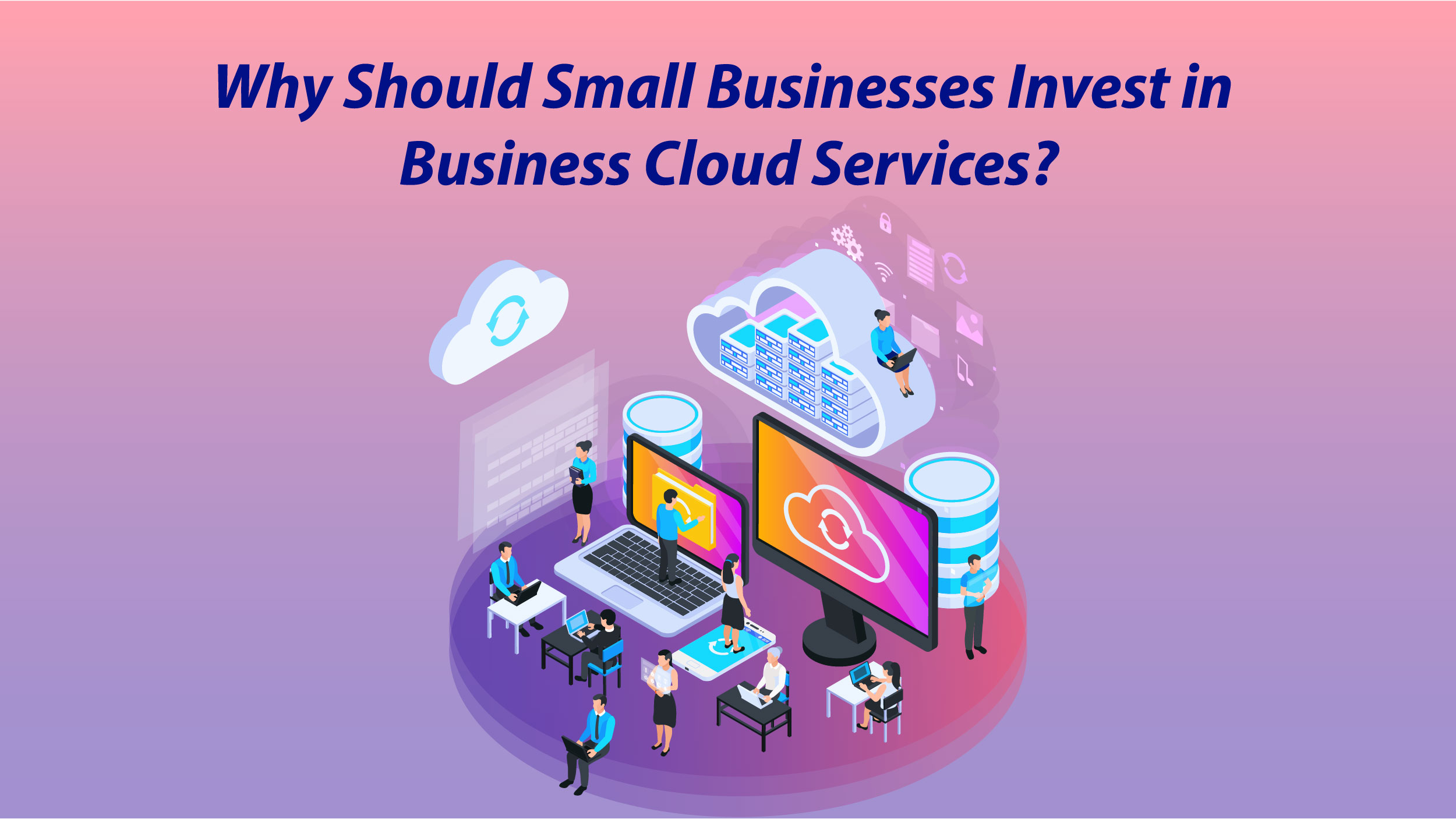Imagine having access to all your company’s important data and files wherever you go. This convenience is made possible through cloud computing technology, which offers the best cloud services for small businesses. In today’s digital age, using cloud services is essential for any company. However, the needs and usability of cloud services vary between large enterprises and small businesses. It is crucial to choose the most suitable cloud services for small businesses and large companies.
In this post, we will highlight the advantages of business cloud services and why they are crucial. Additionally, this blog will explain the basic concept of cloud services and why small businesses should effectively use and implement them for their data backup systems. Let’s delve into the details.
What is Business Cloud Service?
Business cloud services refer to cloud-based computing services and resources that are specifically designed to meet the needs of businesses and organizations. These services provide a range of functionalities and capabilities, such as storage, networking, data management, software applications, and infrastructure, delivered over the Internet on a pay-as-you-go basis.
Popular providers of business cloud services include:
- Amazon Web Services (AWS): Offers a wide range of cloud computing services, including storage, compute power, databases, and AI/ML capabilities.
- Microsoft Azure: Provides a comprehensive suite of cloud services, including infrastructure, platform, and software offerings.
- Google Cloud: Offers cloud computing services for data management, hybrid, and multi-cloud environments, and AI/ML applications.
These are just a few examples, and there are many other cloud services for small businesses available in the market.
It’s important for businesses to carefully evaluate their needs, consider factors such as security, reliability, and cost, and choose a reputable cloud service provider that aligns with their goals and objectives.
Why Should Small Businesses Invest in Business Cloud Services?

Here are some key reasons why small businesses should consider activating cloud solutions:
- Ease of accessibility from anywhere
- Improved flexibility
- Enhanced data security
- Privacy, and control
- Cost-effective services with an economical upfront investment
- Convenience for maintaining a remote team and facility
- Easy data backup options
- Business process automation
- Staying updated with the latest technology
- Better team collaboration with consistent user experience
Also Read: Tech Talk: The Ultimate Guide to Business Technology Solutions
Benefits of Business Cloud Services
- Accessibility: Cloud computing provides seamless access to documents and data anytime, anywhere, facilitating easy onboarding of new employees.
- Collaboration and Consistency: Shared access to documents enhances team collaboration, ensuring efficiency and productivity by eliminating inconsistencies between different document versions.
- Scalability: As your business grows, cloud solutions can effortlessly accommodate new employees, and you can easily upgrade your subscription for more storage space or advanced features.
- Cost Savings: Cloud services eliminate the need for expensive in-house hardware, saving time, money, and effort on server infrastructure and maintenance.
- Data Backup: Cloud-based services ensure data safety by automatically backing up documents, eliminating the risk associated with traditional storage methods like external hard drives.
- Data Security: Despite concerns, cloud computing employs robust security measures such as encryption, making it highly secure against cyber attacks, often more so than in-house servers.
- Consistent Upgrades: Cloud providers regularly update services, offering instant access to the latest technological developments, a cost-effective alternative to managing and updating an in-house server.
How Can Business Cloud Services Help You Scale and Grow?
Below are some prominent services included under business cloud service that can aid in business growth:
Infrastructure as a Service (IaaS): IaaS provides businesses with on-demand access to computing resources, such as servers, storage, and networking. This allows businesses to quickly and easily scale their IT infrastructure up or down as needed.
Platform as a Service (PaaS): PaaS provides businesses with a platform for developing, deploying, and managing applications. This can help businesses reduce the time and cost of developing new applications, and make it easier to scale applications to meet growing consumer demand.
Software as a Service (SaaS): SaaS provides businesses with access to cloud-based applications, such as CRM, ERP, and email. This can help businesses reduce the cost of software licenses and maintenance.
Closing Thoughts
In small business operations, integrating cloud computing is imperative for enhancing privacy and security, fostering seamless collaboration within your team, facilitating efficient data storage and backup, ensuring accessibility, and streamlining costs associated with server maintenance.
Nevertheless, the landscape of business cloud services is diverse, and not all offerings are tailored to meet the unique requirements of every business. When determining the most suitable cloud services and providers for your enterprise, it’s crucial to assess your specific needs and how each service aligns with them. However, armed with the insights provided in this informative guide, you can make informed decisions and embark on the journey of finding the ideal cloud provider for your business needs.

